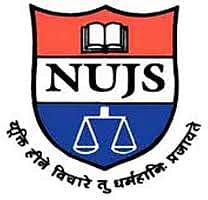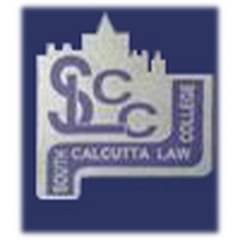Shyambazar Law College News & Updates 2024 - Notifications, Notice, Result
- 4 ReviewsKolkata (West Bengal)
- Private
- Approved by : AICTE
Related News

Importance of Moot Courts for Law Students in India
Participating in moot court sessions is crucial for students aiming to be lawyers, as it prepares them and simplifies their work when they actually argue cases in a real court. At university or college, a student has the opportunity to get direct courtroom experience through these organised moot court proceedings.
Mooting is a practice that helps law students develop necessary habits and learn about court rules and procedures, making them ready for their future. Moot Court competitions take place globally with the purpose of letting students from various countries meet and gain a deeper understanding of mooting.
This article goes into the essence and importance of moot courts for law students. It explains what elements are involved in moot court sessions, looking at its key components. The history of moot courts is also detailed in this article along with their constant relevance. Furthermore, it enlists prominent national and international moot competitions.
Also Read: List of Integrated Law Courses in India
What is a Moot Court?
A moot court, in India, is like a fake court setup where students of law take part in imaginary legal activities to improve their real-life skills and comprehension of courtroom operations. Moot court competitions see students researching and putting forward arguments on an imagined case, taking the role of either appellant or respondent. These moot court proceedings often include different legal domains such as Public Law, Human Rights and Criminal Law among others.In India, the beginning of mooting can be traced back to 1981. Moot courts have become a crucial method for preparing law learners in persuasive advocacy. They provide an environment where students can interact on legal matters, improve their research abilities, cooperate within teams and exhibit advocacy skills while boosting confidence and speaking capabilities.
Students who take part in moot courts find it mentally satisfying, exciting and helpful for future jobs like being lawyers or Judges as well as arbitrators. It forms an important aspect in the study of law, giving a place for learners to sharpen necessary courtroom abilities and enhance their chances of finding work within the legal domain.
Why are Moot Courts Important for Law Students in India?
Here are some very important and noteworthy points regarding the importance of moot courts for law students in India:Practical Experience: Through moot courts, law students get a chance to have an experience in a real-world courtroom, which is how they become familiarised with court settings and put to practice all that they have learned.
Developing Strong Self-Belief: Participation in mock court debate enables the students to progress towards independence, trust, and inner strength by arguing before judges and lawyers as well as their peers, thus increasing their level of self-belief.
Researching Skills: Moot court olympiads are research enhancing as they force students to explore case facts, hidden points, and legal arguments which give them expert skills to carry out meticulous research and come up with powerful arguments.
Collaboration and Teamwork: Moot courts stimulate sustained collaboration and active teamwork of students from different colleges and universities, which gives the students an opportunity to help each other, identify their strengths and weaknesses, and put into practice the skills entailed in working as a team.
Exposure to Diverse Perspectives: Students receive the opportunity to dialogue with classmates from other universities during moot court competitions and this provides them with experience of foreign viewpoints, thus broadening their understanding of legal issues.
Enhanced Advocacy Skills: Preceding moot courts, students develop their oral and written advocacy skills and grasp how to argue in a persuasive way, think innovatively and answer questions appropriately from the judges and opponents.
Preparation for Legal Careers: Moot courts are a great training ground for law students envisioning careers as lawyers, judges and legal professionals as they offer them practical courtroom knowledge and improve their legal skills.
Understanding Court Procedures: Moot courts teach us the mysteries of the processes, policies and procedures in court proceedings, whence we develop a knack for the intricacies of real-life law practice
Enhanced Communication Skills: Students in moot court competitions become better at speaking publicly, arguing effectively, and convincing people which are the basic parts of effective legal advocacy.
Critical Thinking: Moot courts train students in analytical legal thinking by bringing the challenge of analysing legal issues, coming up with arguments, and arguing for their positions based on sound logic.
Networking Opportunities: Moot trials give students the chance to network and connect with fellow students, legal professionals, and judges. These connections could be beneficial when these students enter the workforce.
Legal Knowledge Application: Mock charges give students an opportunity to practically practise the things they have theoretically learned to finally make a right comparison between them and real-life legal practice.
Confidence Building: Students gradually gain the confidence to speak, ask questions and present their arguments - three relevant skills for success in the legal profession.
Experiential Learning: Through moot courts, students gain practical learning experiences that culminate in instructional legal education and consequently give an insight into the advocacy and procedures of the courtroom.
Global Exposure: Indian law students’ attendance in moot court competitions is a unique chance for them to commune with like-minded youth from different corners of the world, which adds as a bonus the depth of their foreign law thinking and international outlook.
Also Read: List of Law Courses in India
Tips To Succeed in Moot Courts in India
Here are some of the essential and interesting tips to succeed in moot court competitions/ sessions. If you follow these tips then you can be assured to not only enhance your learning and knowledge but also become good in arguments along with gaining a lot of confidence.Thorough Case Analysis: Ensure the facts of the case are well researched, alongside a timeline of relevant events and identify the principal issues and sub-issues that the litigation is bound to entail. Clarify in detail the problem by outlining it fragmentally in order to prevent salient points from being overlooked.
Effective Research: Apply the IRAC (Issue, Rule, Analysis, Conclusion) method of research to acquire insight for pinpoint and informed legal research. Narrow your search further to cases, laws, and articles that are the most relevant to constructing solid arguments.
Crafting Compelling Arguments: Students should be taught to formulate logical and well-based legal arguments using the IRAC framework. Giving a proper application of the law to the facts of the case in support of the conclusions was done on the basis of binding precedents.
Developing Advocacy Skills: Develop your perfection of oral advocacy through the simulation of moot proceedings. Know how to think quickly, engage with the audience, and answer questions using the evidence logically with straight sentences.
Building a Strong Team: Raise a moot team which can complement each other. Make the group members who are researchers, writers, and speakers strong, so that each of them will work together as a team and be interested in the competition.
Selecting the Right Competition: Make a moot court competition that suits your tastes and skills better. For starters, a smart thing to do is take part in local moots where one can get practice before trying to succeed at national or global moots.
Attention to Detail: Be aware of things like competition guidelines, formatting formalities, and deadlines. Make sure that you submit the best quality of work and follow all requirements stated in the instructions.
Continuous Practice: Participate in the rounds of moots with other teams as well as in internal moots in order to sharpen your statements, identify the areas for improvement, and boost overall effectiveness.
Maintaining Composure: Maintain calmness and composure during the event, despite being put against difficult questions or changing situations. It is imperative to possess both confidence and composure as you strive to succeed in a moot court endeavour.
Seeking Feedback: Attactively ask for advice from the coaches, balancers, and experienced mooters to find the weak points and consider their suggestions in your preparation.
Also Read: Colleges Offering Admission in Law Courses Based on Class 12 Marks
What are Moot Court Competitions?
Moot Court Competitions are similar to real court proceedings. In these competitions, students or lawyers join a pretend trial where they study and look at a legal issue, search for related laws, get ready with written statements and finally present their oral arguments in front of judges' groups. The purpose behind these competitions is to give an authentic feel of being in court; this helps participants learn how to handle practical aspects related to legal advocacy such as good communication skills, working together efficiently as well as team playing abilities among others.Moot Court Competitions are common in India. Different law schools, bar associations and legal organisations within the country arrange these events. These competitions offer an opportunity for students studying law to improve their abilities in legal investigation, examination and arguing. They also provide chances to make connections with legal experts and improve one's resume by exhibiting legal abilities as well as dedication towards advocating for the law. India boasts a lively moot court culture, with many national and international contests drawing participants from around the globe.
Moot Court Competitions Outside Law Schools in India
Moot Court Competitions are common in different countries and arranged by universities, top law colleges in India , plus legal organisations. Usually, these competitions consist of students getting ready and giving legal arguments about fabricated legal situations to judges just like in a court setting. The abilities of participants are evaluated based on their legal analysis, verbal representation skills and how they present themselves overall.Moot Court Competitions Outside of Law Schools are often arranged by legal organisations, like bar associations or law firms. They give the competition its structure. The competition typically includes two groups of participants who represent different views in a case. These teams prepare written documents and present oral statements to a group of judges. The style of the competition might change but generally, it will resemble an imitation of a court hearing where advocates argue their cases before a panel made up of several judges or even a single judge.
Also Read: How to Read Newspaper for CLAT 2025 Exam Preparation?
Key Elements of Moot Court Competitions
The key elements of moot court competitions are explained below:Case Preparation
- The participants should be capable of understanding the circumstances and facts of the moot problem.
- They are able to perform comprehensive legal fact-findings to discover relevant laws, regulations and case law for the case in question.
- Participants then try to save/ boost their client’s legal standing by defending it through persuasive arguments.
Oral Advocacy
- The presentation of oral arguments is done before a judge or panel of judges. The participants get an idea of a real court proceeding.
- They demonstrate that they can give quick verbal responses, handle the questioning of the judges, and defend their stand more convincingly.
- An individual must also possess public speaking and communication skills that are very much impeccable, clean and well thought through.
Legal Writing
- Competitors formulate written papers, like legal briefs or memorandums, which set forth their positions, and, persuasively, support them using related legal authorities.
- Try to keep the writing process organised, logical, and convincing. This is a very important aspect of the competition.
Teamwork and Collaboration
- In numerous moot court competitions, teams are created, so that the students learn teamwork, delegation of tasks, and communicating with one another.
- Working together and being able to cooperate effectively are two integral components that make for success in moot trial competitions.
Professionalism and Etiquette
- Competitors are mandated to conduct themselves in a manner consistent with the courtroom decorum, be dressed appropriately, and adhere to formal legal procedures throughout the competition.
- Maintaining respect not only for the judges and the opposing attorneys but for the competition as a whole is paramount.
Notable Moot Court Competitions in India and Abroad - A Case Study
Here are some popular case studies and success stories of moot court competitions in India and abroad, along with the key learning points for a successful moot court session:Moot Court Competitions in India
1. NUJS-HSF National Corporate Law Moot Court CompetitionThe competition that NUJS conducted together with Herbert Smith Freehills is among the most celebrated corporate law moots in India. In 2018, the team from Rajiv Gandhi National University of Law, Punjab was the winner of the event.
Key learning points:
- Complete knowledge of corporate law and statutes.
- Capacity to write sound and appealing arguments.
- Excellent oral advocacy skills that will be effectively used in front of the judges during arguments.
Supported by the Bar Council of India Trust, this competition is now recognized as one of the most prominent moot court events in the country. The competition gives law students a platform to present their excellent skills in international law.
Key learning points:
- Extensive knowledge of the international law and judgement systems.
- Making the analysis of multifaceted legal issues from a global perspective.
- A team that is truly effective is one that possesses excellent teamwork and collaboration skills.
This competition hosted at the University of Delhi is the solitary international criminal law’s moot court contest in India. It pays tribute to the great criminal lawyer, K.K. Luthra.
Key learning points:
- Relatively deeper expertise in international criminal law.
- Adaptability to the virtual/ online moot court proceedings
- Effective time management as well as preparation for remote advocacy.
Moot Court Competitions Abroad
1. Philip C. Jessup International Human Rights Moot Court Competition (Global)The Jessup Moot Court is the biggest moot court competition held worldwide with participation from over 600 law schools from 100 countries. Indian teams have won a number of competitions in this and have even reached the final rounds of the competition internationally.
Key learning points:
- Solid grasp of public international law
- Knowledge in a capacity to research and analyse intricate legal issues
- High quality cross-cultural communication and adaptability are the most important factors
They have a worldwide commercial arbitration competition, which is a field that is developing at a high speed. Indian teams have been quite successful in this competition where some teams triumphed and others even reached the finals.
Key learning points:
- Expertise in the area of international commercial arbitration law and practice
- Skills in the drafting of arbitration-related documents
- Successful mediation and conflict resolution competencies
Also Read: List of Online Law Courses in India
Moot courts are an indispensable part of Indian law schools with innumerable national and international competitions organised every year. These events cover all kinds of legal topics such as company law or international arbitration. Thus, students have a chance to explore up-to-date legal matters.
Participation in moot courts is often a key extracurricular activity, which strengthens a student's CV and makes them more competitive in the legal job market. Moreover, besides the law schools, moot court competitions are arranged by some other legal bodies like the Bar Council of India and some renowned law firms, which in turn expands the prospects for law students to display their capabilities.
These competitions are open to law students across the country, and sometimes internationally, crafting a dynamic group of students interested in the legal profession. Getting into a moot court competition might not necessarily lead you to become an advocate, but it will show employers how outstanding your legal abilities and comprehension of the law are, making you a recruit of choice.
As moot court experience is highly valued by the law firms it shows that the candidate is ready to deal with the complexity of the legal profession. Also, having connections and networks from moot court competitions may increase the chances of getting valued internships and job opportunities.
For more latest updates on various law courses, stay tuned to CollegeDekho . Also, for any query head to our QnA Zone or fill out our Common Application Form .

Preparation Tips for English Language Section of AILET 2025
AILET 2025 English Language section is an important section therefore, it is very important for the candidates to put extra emphasis on this section. The section has 50 questions for a total of 50 marks. The subject weightage is low in comparison to other sections, but the candidates cannot ignore this section as this section can help you get brownie points due to its easy and scoring nature.

Preparation Tips for General Affairs Section of AILET 2025
The AILET 2025 is scheduled to be conducted on December 08, 2024 to offer admission to National Law University, Delhi and some of the leading private institutions offering law courses.The general affairs section of AILET 2025 has a total of 30 questions for a total of 30 marks. It is essential for all the candidates to perform well in all sections in order to get a good overall score which can be obtained by following some of the best preparation tips and tricks.

Preparation Tips for Logical Reasoning Section of AILET 2025
AILET 2025 will be held soon and it is important for the candidates to score well in the exam in order to get the desired college and course. To bring a good overall score it is mandatory for the candidates to perform exceptionally in all the sections.

CUET BA LLB University List 2024: Central & Private Universities
CUET BA LLB University List 2024: The Central Universities Entrance Test (CUET) is administered by the National Testing Agency (NTA) to facilitate admission to undergraduate Law programs across various universities and colleges. BA LLB, an integrated law program, becomes accessible to students post their completion of Class 12 exams. This five-year degree entails a study of both LLB and other Arts disciplines. The CUET BA LLB university list for 2024 comprises more than 100 universities offering Law programs this year. This article aims to furnish candidates with a detailed compilation of CUET BA LLB universities for 2024, alongside eligibility criteria. The list will empower students to make informed decisions regarding university selection and mapping their educational and career pursuits.
Related Questions
Admission Updates for 2024
Kingston Law College
Kolkata (West Bengal)
University of Engineering and Management
Kolkata (West Bengal)
The Neotia University
Kolkata (West Bengal)
Brainware University
Kolkata (West Bengal)
Ramaiah Institute of Legal Studies
Bengaluru (Karnataka)






























